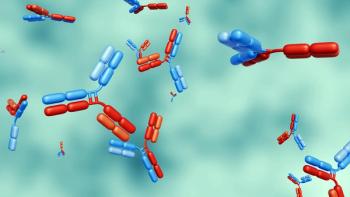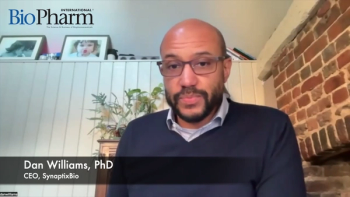
FDA’s clearance of a chemically enhanced stem cell therapy for severe aplastic anemia drives forward cell therapy development and manufacturing innovation.

FDA’s clearance of a chemically enhanced stem cell therapy for severe aplastic anemia drives forward cell therapy development and manufacturing innovation.

Priority review, RMAT, and breakthrough status were key regulatory actions intensely accelerating advanced next-gen therapy development in 2025.


Under the expanded agreement, the companies are targeting amyloid removal strategies to address unmet needs in rare diseases.

siRNA-based cell reprogramming shows potential to improve metabolic health with durable effects, signaling a notable development for future therapeutic strategies.

RxCelerate and Constructive Bio will combine programmable biology with integrated discovery tools to speed engineered biologics for hard-to-treat diseases.

The company demonstrates advances in glioma hydrogel, high-concentration biologics, and nanoencorafenib licensing, impacting drug delivery strategies.

At AAPS PharmSci 360, Kelly Donovan says tailored analytical strategies are necessary for reducing development delay risks.

Non-parenteral alternatives for biologics remain a clinical imperative and a formidable challenge.


By licensing Talicia to priority markets, RedHill targets growing antibiotic resistance to the cancer-associated H. pylori bacteria with an FDA-approved, fixed-dose therapy

Bristol Myers Squibb and SystImmune’s iza-bren shows promising efficacy and safety in EGFR-mutant NSCLC after TKI and chemotherapy, backed by data from global and China-based trials.

Dan Williams, PhD, SynaptixBio CEO, discusses how rare disease drug development leverages genetic targeting and drives innovation and investment in pharmaceutical technology and precision medicine.

Strand advances targeted mRNA therapies, with Phase I STX-001 solid tumor data presented at the 2025 ASCO Annual Meeting.

Under the licensing agreement, the proposed biosimilar candidate, PolyPB016, will be developed and manufactured by Polpharma Biologics and commercialized by Fresenius Kabi.

Phase III study findings emphasize donanemab-azbt's (brand name Kisunla) ability to slow the decline of patients exhibiting early symptomatic Alzheimer’s disease.

At AAIC 2025, Roche presented new data from its Alzheimer’s disease research efforts across its diagnostics and pharmaceutical portfolios.

The company’s technology was used to create CAR-T cells that demonstrated the expression of complex CARs in a single DNA donor.

The biopharmaceutical landscape is undergoing a huge shift from traditional therapies to more specialty-driven modalities.

Avidicure is a new biotechnology company that has been launched on the back of a $50 million seed financing round for developing a new multifunctional antibody modality for treating cancer.

The proposed business combination would create a publicly traded, clinical-stage biopharmaceutical company that will focus on developing a pipeline of next-generation cancer therapies.

Using cholesterol-modified oligonucleotides, the research team aims to improve the delivery of antisense nucleotide-based therapies for treating neurodegenerative diseases and brain cancers.

This collaboration aims to advance a first-in-human clinical study by using autologous iPSC technology.

Through this collaboration, Circio will combine its circVec DNA vectors with Entos’ Fusogenix PLV delivery technology, which is expected to enhance delivery efficiency and reduce toxicity.

The £10 million (US$13 million) investment is part of a larger £58 million (US$75 million) Series A financing round to be used for the development of Maxion Therapeutics’ preclinical lead program for treating inflammatory diseases.